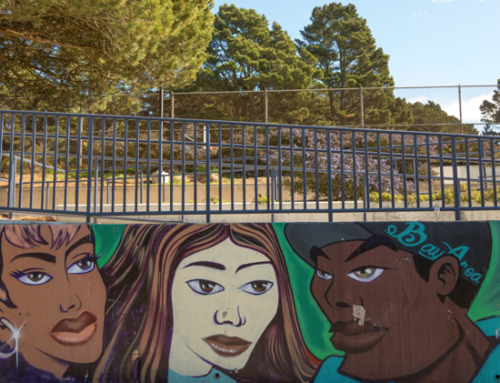I. Overheard on Campus
- History? That lecture verged on science fiction.
- Man, it’s just bananas how much power corporations used to have over public education.
- Talk about the free pursuit of curiosity….
- Ok, but that idea has a history, too, you know. Although, once rich people realized schools were such low-hanging fruit, they definitely went for them. The prof made a similar point about prisons and hospitals last week.
- Actually, I think she was making a slightly different point today. Elites didn’t go after universities in the same way they designed prisons. Instead, it was universities that factorized themselves to suit neoliberal tastes so they wouldn’t get defunded by governments. With the result, of course, that their budgets were repeatedly cut.
- Wait, I wasn’t at the lecture, but is that why they started using those pseudo-market indicators, ratings, slogans etc.? Remember “Born Leaders Reach for Infinity”?
- Those were definitely symptomatic, but the worst thing was how they allowed populist politicians and private-sector funders to tell them what’s important.
- For a moment there, when universities were not beset by nationalist agendas, they were basically subcontractors for corporations at public expense.
- I can imagine what that did to stimulating creativity, not to mention democracy….
- So, there actually was no hostile takeover. Which makes it even more tragic.
- Thank goodness for Covid, the great equalizer.
- Yup, once Covid sent people to college in droves, first-gen students were just stunned by how deeply and similarly healthcare, education, etc. were eviscerated by New Public Management, and how out of touch curricula were with de-colonial agendas.
- Which is why their protests resonated so deeply with so many people. It was painfully obvious how infrastructures that should have been public were in fact taken over and sold to the highest bidder by tech giants like Just Tell Me What This Is and Show Me Stuff. It’s incredible how many public systems were effectively running on their software and giving them data, while these were fomenting racial and class animosity around the world.
- But how did academics miss this downwards spiral? That’s pretty myopic.
- Some benefited from it. But, to be fair, most faculty were vulnerable, and buried with busy work, and universities had increasingly smaller budgets, with more of it consumed by middle management, marketing, and financing. Without students stepping up, fundamental reform was hopeless.
- In hindsight, the symbolism of paywalls and the existence of companies like Buy Your Article From Us is stark, but at the time this was just one more thing to think about.
- So, the solution had to come from students. Just when infantilizing them as “clients” and cheating them out of a proper education was becoming the new normal, they began asking some tough questions as engaged citizens, created new political structures, and demanded quick and lasting reforms. And here we are, studying for free under the New Higher-Ed Act.

Operation Trojan Horse: The Un-Corporate Takeover of The Iron Maiden, 2025. Credit: Photo by Gianluca Cescon
II. From the Daily Penguin, 18 December, 2030:
As the year draws to a close, the Arts and Social Sciences Faculty announced today its full transition to the New Higher-Ed Act. All departments have now officially abolished tenure procedures and promotion quotas. Every staff member has a full and permanent contract befitting their experience and contribution, with teaching and administrative duties increasing along with seniority.
Collaborations between staff and programs will now be simpler than before to implement: proposals concerning teaching will be handled by departments, and for research, by the relevant schools. Personal and even small group grants will no longer be evaluated by the National Research Fund or the European Research Council. These centralized bodies’ budgets were shrunk by 90% as they reverted to their original missions, namely supporting transnational projects, infrastructures, and national collaborations. The remainder of their funds, according to our Associate Dean for Research, “goes back to those who actually teach and do research, with the added advantage that the faculty no longer requires elaborate research offices.”
Funds gained and saved in this way will pay for restoring structural sabbaticals. Even more importantly, the reviled two-tier system of grant “winners” and teaching “losers” becomes a thing of the past, resulting in greater solidarity among faculty and a revitalized cross-pollination of teaching and research.
To recall, the Act’s implementation allows any undergraduate to study up to four years for free (five for first-generation students and six for refugees), either at a university or another approved institution. Since tertiary education is now a universal human right, programs cannot be penalized for students who do not complete a course load. It is simply assumed that several years of course work will give most people sufficient tools to be engaged and critical citizens. PhDs and anything falling under the rubric of advanced research is also free until graduation.
Responding to students’ calls for democratization and decolonization of curricula, the faculty will continue experimenting with open plenaries in each taught degree, major and minor. Students will have a formal say on teaching quality and especially curricula, working directly with program directors to design appropriate evaluations.
While not all faculties could respond at the same pace or have the same needs, the university’s governance has already begun to adhere to the principle of downwards accountability, following the Act’s strictures. Starting in 2031, deans and other major leadership positions can no longer be personned by career managers with corporate-style salaries and accoutrements; they have to demonstrate extensive research and teaching experience, and serve no longer than three years with obligatory cooling-off periods. And to help support decentralization, they will also work from their regular offices.
Perhaps the most peculiar aspect of the New Higher-Ed Act, as it will be applied at this campus, is that a lack of in-house capacity, previously seen as an obstacle for growth and critical reflection on colonial structures, now becomes a catalyst for new hires and training. According to our Dean, “The new Act addressed what everyone knew but did little about: faculties’ inherent conservatism, whatever its roots, stifled diversity and reckoning with our country’s and institution’s past.” Diversifying staff and course offerings are envisaged by the new Act as an inclusive approach designed to meet demands in the ever more popular arts faculties.
III: On A Campus Tour
“…and here is the famous garage where university bosses used to park their cars. Or rather, their drivers would. After it was repeatedly and inexplicably flooded, the space was revamped to house rehearsal and seminar rooms and the campus radio, Hamish FM.
“You’re all probably familiar with the building above it, the Iron Maiden. In the midst of student protests in 2025, it was leaked that this beloved monument was to be sold to a real-estate developer to pay for yet another bad investment the university made. So, students and staff occupied it, entering in broad daylight dressed as business executives, marketing specialists, and communications advisers. It quickly made national and global headlines, and although the higher-ups initially called it the university’s Dies fatalis, a series of livestreamed public debates led to a national consensus on the need to reclaim higher education. Within two months the New Higher-Ed Act was signed into law, and the rest, as they say, is history.
“To the left of the Iron Maiden is the recently completed university library. When it was originally planned, managers envisaged it as a “bookless learning space,” believe it or not. One of them told a bewildered student, “If you can’t read it on your smart phone, it’s not worth reading.” Incidentally, if you want to see bad ideas that were put into practice, I recommend the interactive model office at the university museum. It has the iconic single shelf for books, a Zoom screen, and a scream-in closet. Visitors are given a magnetic card and a map to try and get to it, passing endless gated corridors. There are also some hilarious throw-back forms you can fill, including ‘Compliance with Promotion Regulations,’ ‘Graduation in 32 Simple Steps,’ and my own favorite, the standard evaluation form ‘Garbage In, Garbage Out.’.
“Before we leave the library courtyard, notice the sculpture of the large, hovering open lock. It’s the universal icon of Open Access, evoking the idea that science only thrives when it’s shared. In reality, under rampant digital capitalism, many scholars gave control of their work to academic publishers like Chump, who then sold public universities access to their own staff’s research for an estimated $10 billion annually.
“It was above all librarians who could see the whole sordid picture. Which is why libraries played such a key role in the uprising leading to the New Higher-Ed Act. Being some of our best data scientists, librarians could coordinate digital strikes against corporations, provided hard proof for how research agendas and publication policies perpetuated colonial mentalities, and developed new infrastructures to democratize scholarly communications. It’s almost 2031, and librarians are our super-heroes.
“Our next stop is the Campus Divestment Center….”
Cite as: Geltner, Guy. 2020. “The Academic Year 2030/31: A Triptych Fantasy.” In “Post-Covid Fantasies,” Catherine Besteman, Heath Cabot, and Barak Kalir, editors, American Ethnologist website, 27 July 2020, [https://americanethnologist.org/features/pandemic-diaries/post-covid-fantasies/the-academic-year-2030-31-a-triptych-fantasy]
G. Geltner is a historian at the University of Amsterdam and Monash University and co-founder of BodoArXiv, an open access repository of works in medieval studies.




